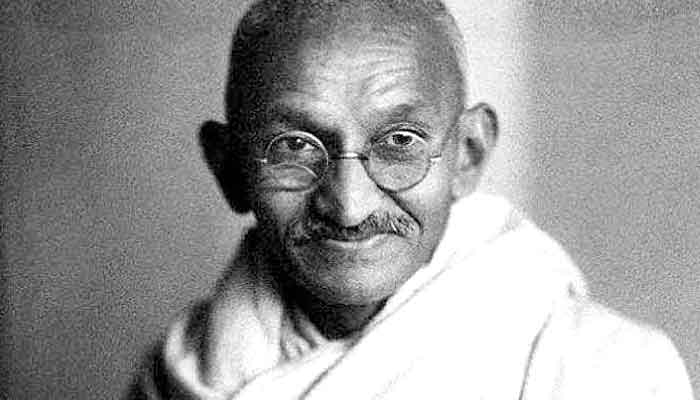Gandhi missed Nobel Peace Prize on calling war against Pakistan
NEW DELHI: Why did the Nobel Peace Prize ignore the ‘Apostle of Peace’ himself? This is a question that has been asked since Mohandas Karamchand Gandhi, or the Mahatma, was assassinated 72 years ago on 30 January 1948.
The Norwegian Nobel Committee’s archives showed he was nominated five times and was on the shortlist thrice. But a misleading news report of a prayer meeting in which he seemingly advocated a war with Pakistan denied him the chance once. Later in 1948, he was sure to be invited to Oslo, but for Nathuram Godse.
Supporters had nominated Gandhi for the big honour in 1937, 1938, 1939, 1947 and 1948. Each time, the committee looked elsewhere. Over the years, less famous (and sometimes outright infamous) people have walked home with the prize, but the glaring omission has always been troubling — even to the committee, reported foreign media. Those who accompany Gandhi in the omission register form a trivia-quiz champion’s dream list: Joseph Stalin, Adolf Hitler, Winston Churchill and Benito Mussolini. Two more persons feature in the list — one Gandhi was inspired by and one he inspired — Leo Tolstoy and Jawaharlal Nehru.
In the decades since the Mahatma’s assassination, an embarrassed Nobel committee (elected by the Norwegian parliament) has tried to make up by honouring several ‘Gandhians’, including Martin Luther King Jr (1964), Aung San Suu Kyi (1991), Nelson Mandela (along with Frederik Willem de Klerk, 1993) and Kailash Satyarthi (along with Malala Yusufzai, 2014).
Mahatma Gandhi found himself in the shortlist for a second time in 1947, just before India’s independence — credited to the non-violent struggle led by Gandhi — when three leaders from the country sent telegrams nominating him for the prize. They were B.G. Kher, prime minister of Bombay province, G.B. Pant, premier of United Provinces, and G.V. Mavalankar, president of the national legislative assembly.
“From the diary of committee chairman Gunnar Jahn, we now know that when the members were to make their decision on October 30, 1947, two acting committee members, the Christian conservative Herman Smitt Ingebretsen and the Christian liberal Christian Oftedal spoke in favour of Gandhi… However, in 1947 they were not able to convince the three other members.” They were also influenced by a news report, published in The Times on 27th September, 1947, which quoted Gandhi as supporting a war with Pakistan.
The report said: “Mr. Gandhi told his prayer meeting to-night that, though he had always opposed all warfare, if there was no other way of securing justice from Pakistan and if Pakistan persistently refused to see its proved error and continued to minimise it, the Indian Union Government would have to go to war against it. No one wanted war, but he could never advise anyone to put up with injustice. If all Hindus were annihilated for a just cause he would not mind.” Gandhi was quick to state that the report was correct, but incomplete. He had also said he “had no place in a new order where they wanted an army, a navy, an air force and what not”. In 1948, the nomination deadline was two days after Mahatma Gandhi was assassinated.
-
 Will There Be 'Smiling Friends' Season 4? Animated Series' Creators Make Big Announcement
Will There Be 'Smiling Friends' Season 4? Animated Series' Creators Make Big Announcement -
 Jennifer Aniston, Boyfriend Jim Curtis Prepare To Move In After 'hard Launching' Their Relationship?
Jennifer Aniston, Boyfriend Jim Curtis Prepare To Move In After 'hard Launching' Their Relationship? -
 Lamar Odom Details Struggle With Addiction And ‘amazing’ Rehab Experience
Lamar Odom Details Struggle With Addiction And ‘amazing’ Rehab Experience -
 Nvidia Vs Intel: Jensen Huang Braces Investors For Renewed Battle As Chip Wars Reignite
Nvidia Vs Intel: Jensen Huang Braces Investors For Renewed Battle As Chip Wars Reignite -
 Heidi Montag Reveals Why She Felt 'robbed' On 'The Masked Singer' After Her Elimination
Heidi Montag Reveals Why She Felt 'robbed' On 'The Masked Singer' After Her Elimination -
 Australia’s Former PM Gives His Honest Take Against The British Monarchy: ‘It Remains This Anachronism’
Australia’s Former PM Gives His Honest Take Against The British Monarchy: ‘It Remains This Anachronism’ -
 Bombshell Reason Behind Cardi B, Stefon Diggs' Breakup Revealed
Bombshell Reason Behind Cardi B, Stefon Diggs' Breakup Revealed -
 Hilary Duff Details How She Protected Her Children’s Mental Health Amid Divorce
Hilary Duff Details How She Protected Her Children’s Mental Health Amid Divorce -
 'The Masked Singer's Snow Cone's Identity Revealed
'The Masked Singer's Snow Cone's Identity Revealed -
 Kash Patel Fires FBI Officials Behind Trump Mar-a-Lago Documents Probe, Reports Say
Kash Patel Fires FBI Officials Behind Trump Mar-a-Lago Documents Probe, Reports Say -
 Martin Short's Daughter Katherine's Death Takes Shocking Turn As Terrific Details Emerge
Martin Short's Daughter Katherine's Death Takes Shocking Turn As Terrific Details Emerge -
 Jeff Galloway, Olympian, Author, Running Legend, Dead At 80
Jeff Galloway, Olympian, Author, Running Legend, Dead At 80 -
 Patrick Dempsey Reacts To Tragic Death Of His 'Grey's Anatomy' Co-star Eric Dane
Patrick Dempsey Reacts To Tragic Death Of His 'Grey's Anatomy' Co-star Eric Dane -
 Sidney Crosby Injury News Shakes Penguins After Olympic Tournament
Sidney Crosby Injury News Shakes Penguins After Olympic Tournament -
 Yankees Honour CC Sabathia With No. 52 Retirement This September
Yankees Honour CC Sabathia With No. 52 Retirement This September -
 Cuban Government Says Boat Full Of Armed Men Fired On Border Guards, Killing 4
Cuban Government Says Boat Full Of Armed Men Fired On Border Guards, Killing 4




